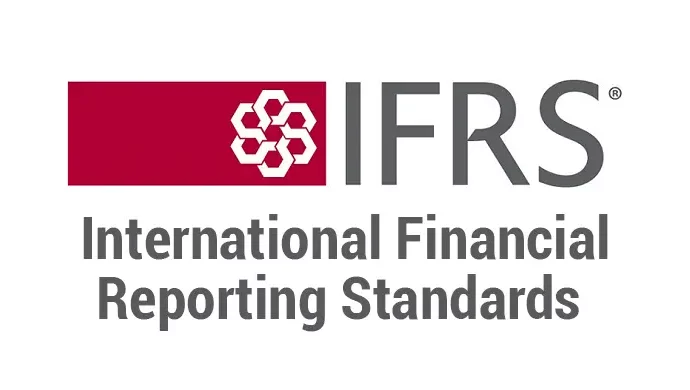Starting a business in Switzerland, renowned for its stable economy and innovation-driven market, requires more than just a good idea—it demands a solid foundation. A well-structured business plan is not only your roadmap to success but also a crucial tool for navigating the unique challenges and opportunities of the Swiss business environment.
Whether you’re seeking to attract investors, secure funding, or simply lay out a clear strategy, a comprehensive business plan ensures that your vision is achievable and aligned with Switzerland’s high standards. Beyond being a document, it’s your pitch to partners, a guide for operations, and a benchmark for growth.
In this article, we’ll break down the essentials of creating an effective business plan tailored to the Swiss context. From complying with strict regulations to addressing diverse market needs, and even optimizing funding opportunities, you’ll gain actionable insights to set your business on the right path. Let’s dive into the building blocks of a successful business plan in Switzerland.
What Is a Business Plan?
A business plan is a strategic document that outlines your business objectives and the steps you’ll take to achieve them. It provides a comprehensive overview of your business idea, detailing everything from your mission and vision to financial projections and market strategies. Think of it as your roadmap—it ensures you stay focused, organized, and prepared for challenges as your business grows.
Why Is a Business Plan Essential?
At its core, a business plan serves three critical purposes:
- Securing Investment: Investors and lenders require a clear understanding of your business’s potential before committing resources. A well-drafted plan demonstrates that you’ve thoroughly considered your market, financials, and operational structure.
- Setting Goals: It helps you define both short-term and long-term goals, ensuring you have a structured approach to achieving them.
- Driving Growth: By providing a step-by-step strategy, a business plan helps you identify opportunities and avoid pitfalls, paving the way for sustainable development.
Why Is a Business Plan Crucial in Switzerland?
Operating in Switzerland’s competitive and regulated market demands precision and preparation. Here’s how a business plan specifically supports success in the Swiss context:
- Navigating Legal Compliance: Switzerland’s business laws vary depending on the type of entity you establish (e.g., sole proprietorship, GmbH, AG). A business plan helps outline your legal structure and ensures compliance with local regulations.
- Building Strong Partnerships: Whether working with Swiss suppliers, investors, or collaborators, a well-structured plan showcases your professionalism and commitment, essential for earning trust in Switzerland’s business culture.
- Understanding Multilingual Markets: Switzerland’s diversity, with German, French, and Italian-speaking regions, requires tailored market strategies. A business plan helps you address these nuances and position your business effectively in different regions.
- Attracting Investors in a Competitive Landscape: Swiss investors prioritize precision, innovation, and reliability. A detailed plan demonstrates that you meet these expectations and are prepared for the challenges of the local market.
In Switzerland, a business plan isn’t just a formality—it’s a vital tool for navigating one of the world’s most dynamic and high-potential markets. By creating a thoughtful, detailed plan, you’ll be better prepared to succeed in this unique business environment.


Why Is a Business Plan Important in Switzerland?
Switzerland’s reputation as a global business hub is built on its stable economy, innovation-friendly environment, and high regulatory standards. For entrepreneurs and business owners, a well-prepared business plan is not only a blueprint for success but also a critical tool for navigating the complexities of the Swiss market. Here’s why it’s indispensable:
Attracting Swiss Investors
Swiss investors—whether venture capitalists, banks, or angel investors—are known for their meticulous approach. They expect a business plan that is both comprehensive and precise, showcasing:
- Clear Financial Projections: Investors need evidence that your business can generate consistent returns. Swiss banks, for instance, require detailed cash flow forecasts and balance sheets to approve loans.
- Strategic Vision: Highlighting your goals and growth strategies in a structured manner demonstrates that you have a clear path forward.
- Market Viability: Investors want to see how your business fills a gap or solves a problem in Switzerland’s competitive market.
A detailed business plan not only boosts your credibility but also increases the likelihood of securing the funding necessary for success.
Navigating Swiss Regulations
Switzerland has a well-defined but strict regulatory framework, varying by canton and industry. A business plan helps you address:
- Corporate Compliance: Clearly defining your legal structure—be it a sole proprietorship, GmbH, or AG—ensures you meet Swiss corporate requirements.
- Permits and Licenses: Certain industries, such as finance or healthcare, require specific certifications. Your plan should outline how you will secure these.
- Tax Planning: Swiss tax laws are intricate and differ across cantons. Demonstrating an understanding of these nuances in your plan reassures stakeholders that your business is prepared for fiscal compliance.
By incorporating these considerations, your business plan becomes a practical tool for meeting Switzerland’s high legal and operational standards.
Understanding the Swiss Market
Switzerland’s diverse consumer base, shaped by its multilingual and multicultural regions, requires businesses to adopt a tailored approach. A well-created business plan reflects:
- Market Research: Demonstrating your understanding of customer demographics, regional preferences, and purchasing behaviours shows your preparedness.
- Competitive Analysis: Highlighting your position relative to competitors—whether on pricing, quality, or innovation—adds value to your proposal.
- Localised strategies: Switzerland’s linguistic and cultural diversity means your marketing and sales tactics may vary significantly between German-speaking Zurich, French-speaking Geneva, and Italian-speaking Lugano.
In Switzerland, success hinges on precision and adaptability. A strong business plan communicates that you not only understand these challenges but are fully prepared to address them. This is what sets you apart in a sophisticated, globally connected market.
Key Components of a Business Plan
A successful business plan is built on clarity, structure, and actionable insights. It serves as both a roadmap for your business and a critical tool for securing funding and partnerships. In Switzerland, where high standards and precision are integral to business culture, each component of your plan must be tailored to the market’s unique expectations.
Below, we’ve broken down the key components of a business plan into an easy-to-navigate format. For each element, we’ve included Swiss-specific tips to ensure your plan aligns with the demands of this competitive environment.
Comprehensive Overview of Business Plan Components
| Component | Description | Swiss-Specific Tips | Example |
| Executive Summary | A concise overview highlighting your business idea, mission, and goals. | Emphasize Swiss values such as sustainability and innovation. Mention partnerships or Swiss certifications. | “Our business aligns with Switzerland’s green initiatives by offering eco-friendly packaging solutions.” |
| Business Description | Detailed overview of your company, including structure (e.g., GmbH or AG), mission, vision, and target market. | Leverage Switzerland’s international reputation for quality and its multilingual, diverse workforce. | “Registered as a GmbH in Zurich, our mission is to simplify logistics for small businesses in the DACH region.” |
| Market Analysis | Research on your target audience, competitors, and industry trends. Include SWOT analysis and customer demographics. | Address linguistic and cultural diversity across Switzerland’s regions. Use localized market research. | “In Geneva, we target French-speaking professionals aged 25-40 who value luxury and sustainability.” |
| Products or Services | Comprehensive description of what you offer, including unique selling points, pricing strategies, and competitive advantages. | Adhere to Swiss quality standards. Discuss compliance with certifications or Swiss consumer expectations. | “Our product is certified by Swiss Organic Farming Standards, ensuring top quality for eco-conscious consumers.” |
| Marketing & Sales Strategy | Outline your sales channels, pricing models, and promotional tactics. | Highlight partnerships with Swiss companies and how you leverage Switzerland’s trusted brand globally. | “We partner with local suppliers in Lucerne to ensure quick delivery and use Swiss branding for international sales.” |
| Financial Plan | Projections for cash flow, budgets, and funding needs. Include a break-even analysis. | Address Swiss banking options, tax planning across cantons, and potential for grants or loans. | “Our financial model factors in Zurich’s higher operating costs and benefits from regional tax incentives.” |
| Organisational Structure | Details about your team, including roles, management structure, and expertise. | Highlight team experience in navigating Swiss regulations and business culture. | “Our CFO has 10 years of experience working with Swiss financial institutions, ensuring compliance and accuracy.” |
Each component of your business plan plays a vital role in illustrating your vision, strategy, and readiness to succeed in Switzerland’s competitive business environment. By tailoring these elements to Swiss-specific expectations—such as multilingual market demands, adherence to local regulations, and leveraging Switzerland’s global reputation—you not only enhance your chances of success but also demonstrate professionalism and foresight to potential investors and partners.
A well-created business plan is more than a document; it is your first step toward thriving in one of the world’s most dynamic markets.


Common Mistakes to Avoid When Writing a Business Plan
Switzerland offers a dynamic and highly competitive business environment, but it also presents unique challenges that require careful planning. A business plan must reflect not only your vision but also the realities of operating in a country known for its regulatory rigour and regional diversity. Let’s explore the most common mistakes entrepreneurs make and how to address them effectively.
Overlooking Swiss Regulations
Compliance with Swiss regulations is non-negotiable. Each canton has its own specific requirements, and certain industries, such as finance, healthcare, or food production, have additional layers of regulation. Ignoring these complexities can result in delays or legal complications, undermining the credibility of your business plan.
For instance, failing to include a plan for obtaining necessary certifications or licenses—such as a trading license for international goods—signals a lack of preparedness. Swiss investors and partners value meticulous planning. Your business plan should clearly outline the steps to achieve compliance, including timelines and costs, to reassure stakeholders of your commitment to meeting legal requirements. For additional support navigating Switzerland’s regulatory environment, explore our corporate administration services.
Underestimating Costs
Switzerland is one of the most expensive countries in the world for businesses, and misjudging operational costs can jeopardize even the most promising venture. Real estate in cities like Zurich, Basel, and Geneva comes with premium pricing, and labour costs are among the highest globally due to Switzerland’s strong employee protections and social contributions.
For example, a startup that neglects to account for mandatory pension contributions and health insurance obligations risks running out of funds prematurely. Your business plan should include detailed, region-specific financial projections that consider salary benchmarks, rent estimates, and logistics costs. Investors expect realistic and well-supported budgets that reflect Switzerland’s high cost of doing business.
Neglecting Market Research
Switzerland’s unique linguistic and cultural makeup is both an opportunity and a challenge. German, French, and Italian-speaking regions have distinct consumer behaviours, preferences, and communication styles. Businesses that fail to address these differences in their market analysis risk alienating key demographics.
Imagine launching a nationwide marketing campaign that uses only German, overlooking the French and Italian-speaking regions. Such an approach would limit your audience reach and potentially harm your brand’s reputation. To avoid this, your business plan should include a localized market strategy. Demonstrating an understanding of regional nuances and proposing targeted marketing efforts will strengthen your case with investors and partners.
Building a Stronger Foundation
The key to avoiding these common pitfalls lies in preparation and precision. By thoroughly addressing regulations, financial realities, and market diversity in your business plan, you not only reduce risks but also align your business with Swiss values of reliability and quality. This attention to detail will position your plan—and your business—as a serious contender in Switzerland’s competitive marketplace.
Tips for Success from ALPINEGATE Business Advisors
At ALPINEGATE Business Advisors, we’ve guided numerous entrepreneurs and businesses through the intricacies of starting and growing ventures in Switzerland. Based on our extensive experience, we’ve identified key strategies that significantly increase the success of a business plan in this unique market.
Tailor Your Business Plan to Switzerland
Switzerland’s reputation for precision, quality, and innovation extends into its business landscape. Investors and stakeholders expect a level of detail and professionalism that reflects these values.
From the very first page of your business plan, emphasize how your venture aligns with Swiss priorities. Whether it’s sustainability, technological innovation, or luxury quality, make these elements central to your narrative. Highlight your commitment to meeting Swiss regulatory standards and ensure your financial projections are tailored to the local economic environment.
“Swiss investors value clarity and commitment. A business plan tailored to their expectations demonstrates that you’re serious about succeeding in their market.” – ALPINEGATE Team
Leverage Local Expertise
Navigating Switzerland’s diverse regulations, multilingual regions, and intricate business practices requires more than generic knowledge. Working with local experts, such as business consultants, legal advisors, and tax specialists, can make a significant difference.
At ALPINEGATE, we specialize in helping clients identify region-specific opportunities and risks. Whether it’s understanding cantonal tax advantages or creating marketing strategies tailored to Switzerland’s German, French, and Italian-speaking regions, our expert guidance ensures your business plan is both compliant and competitive.
“Local expertise is your best investment when entering Switzerland’s market.” – ALPINEGATE Team
Adapt and Update Regularly
A business plan is not a static document; it should grow and evolve alongside your business. Switzerland’s market is dynamic, with trends in sustainability, innovation, and digital transformation continuously shaping consumer and investor behaviour. Regularly reviewing and updating your plan ensures that you stay relevant and adaptable.
For example, if new regulations affect your industry, or you identify emerging trends in one of Switzerland’s regions, incorporating these changes into your plan shows foresight and flexibility.
“Your business plan is a living document. Keeping it updated with market insights and regulatory changes demonstrates your commitment to long-term success.” – ALPINEGATE Team
By following these expert tips from ALPINEGATE Business Advisors, you can create a business plan that not only meets Swiss expectations but also positions your venture for sustainable growth in one of the world’s most competitive markets. Let us help you make your vision a reality in Switzerland!


Conclusion
A well-created business plan is the cornerstone of success in Switzerland’s highly competitive and regulated market. It serves as your roadmap, enabling you to align with local values such as precision, sustainability, and innovation while addressing unique challenges like multilingual markets and high operational costs. With a clear, detailed plan, you not only enhance your chances of securing investment but also establish a solid foundation for sustainable growth.
At ALPINEGATE Business Advisors AG, we specialize in helping businesses navigate the complexities of starting and scaling ventures in Switzerland. From regulatory compliance to market insights, our team provides tailored guidance to ensure your business stands out.
FAQ: Writing a Business Plan for Success in Switzerland
Why is a business plan essential for starting a business in Switzerland?
A business plan is critical because it provides a clear roadmap for your business, outlining your objectives, strategies, and financial projections. In Switzerland, where the business environment is highly regulated, a well-structured plan demonstrates your preparedness and commitment to compliance. It also helps attract investors and partners by showcasing your understanding of the local market and the viability of your business idea.
What are the key components of a business plan tailored to the Swiss market?
The essential components include an executive summary, company description, market analysis, financial plan, and marketing strategies. When targeting the Swiss market, it’s important to highlight compliance with local regulations, regional market insights, and adherence to Swiss values like sustainability and precision. Including multilingual strategies and region-specific data also ensures your business plan resonates with investors and stakeholders across Switzerland.
How can I account for Switzerland's high costs in my financial plan?
Switzerland’s high labour, real estate, and operational costs must be carefully factored into your financial projections. Research current salary benchmarks, office rental prices, and other expenses specific to your canton or city. Including a contingency budget and realistic cash flow projections will reassure investors that you are financially prepared for the challenges of operating in Switzerland.
What common mistakes should I avoid when writing a business plan in Switzerland?
Common mistakes include neglecting market research, underestimating costs, and failing to address Swiss regulatory requirements. Ignoring Switzerland’s linguistic and cultural diversity can also limit your business’s appeal. To avoid these pitfalls, ensure your plan includes localized market strategies, realistic budgets, and a clear compliance roadmap tailored to your specific industry and region.
How can ALPINEGATE Business Advisors help me with my business plan?
At ALPINEGATE Business Advisors, we provide expert guidance to help you create a business plan tailored to Switzerland’s unique market environment. Our services include regulatory compliance assistance, market research, and financial planning customised for your business goals. With our team’s local expertise and deep understanding of Swiss business culture, we ensure your business plan is comprehensive, competitive, and investor-ready.


